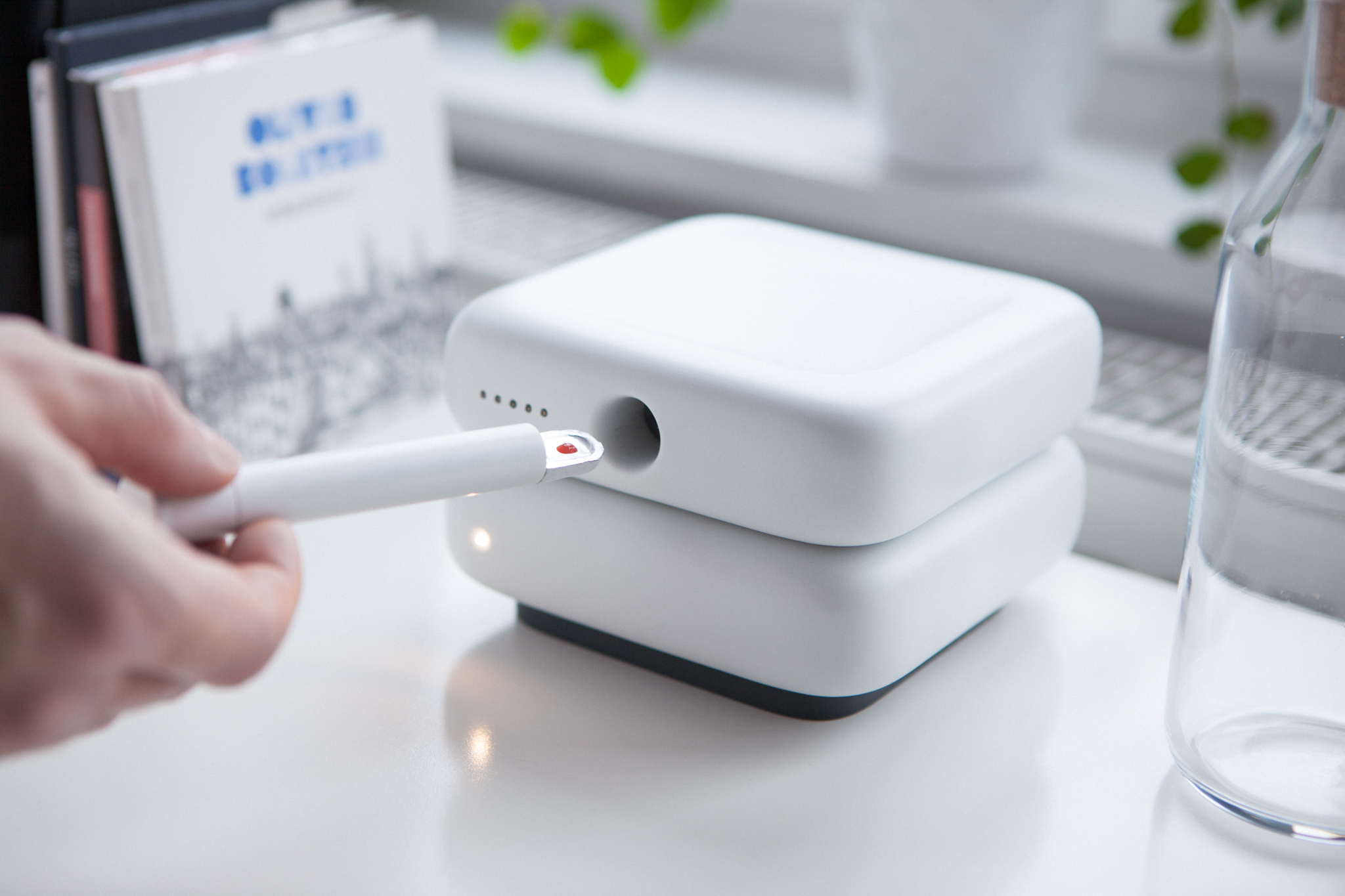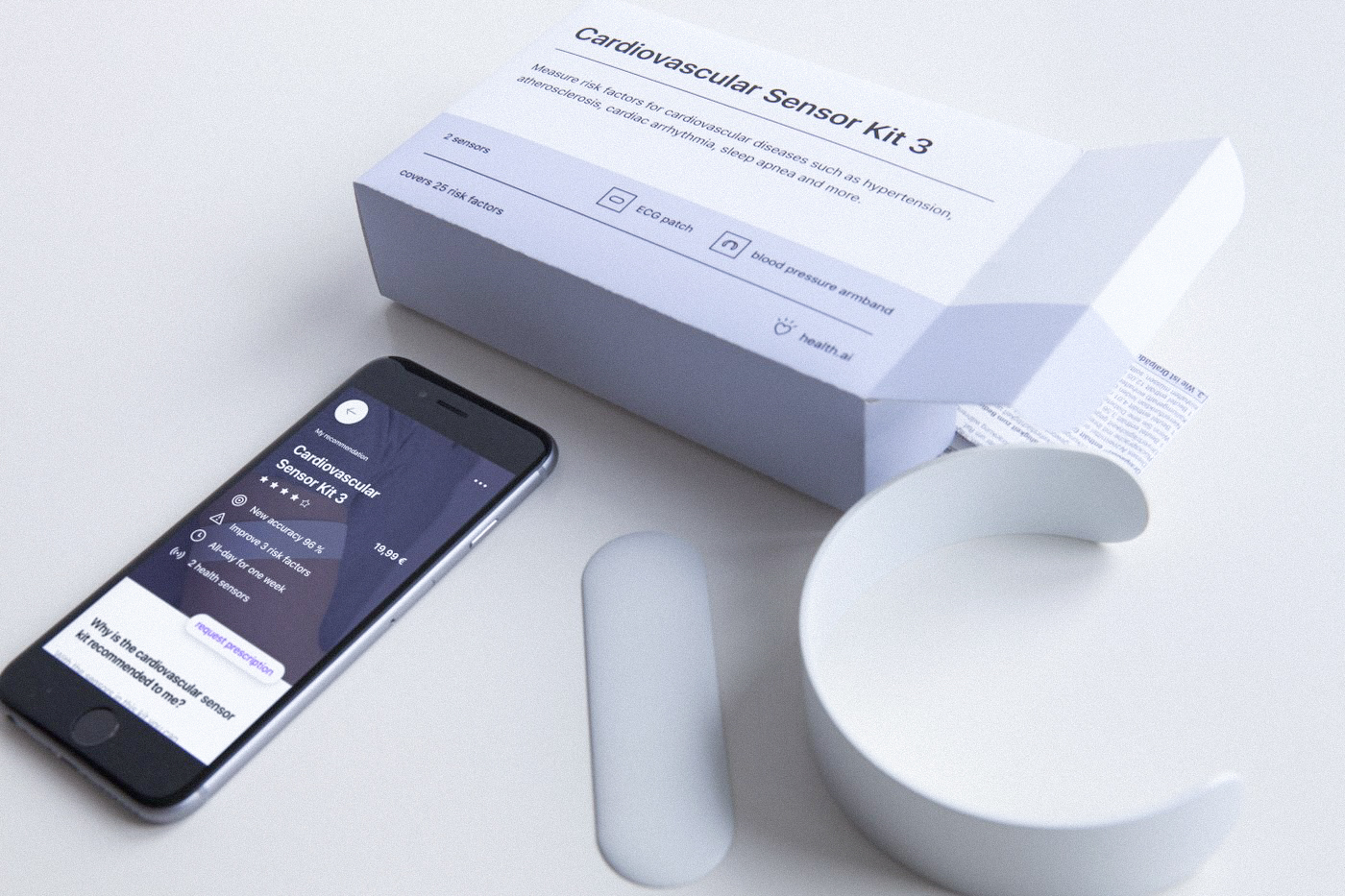Health.ai—Intelligent Health Data System
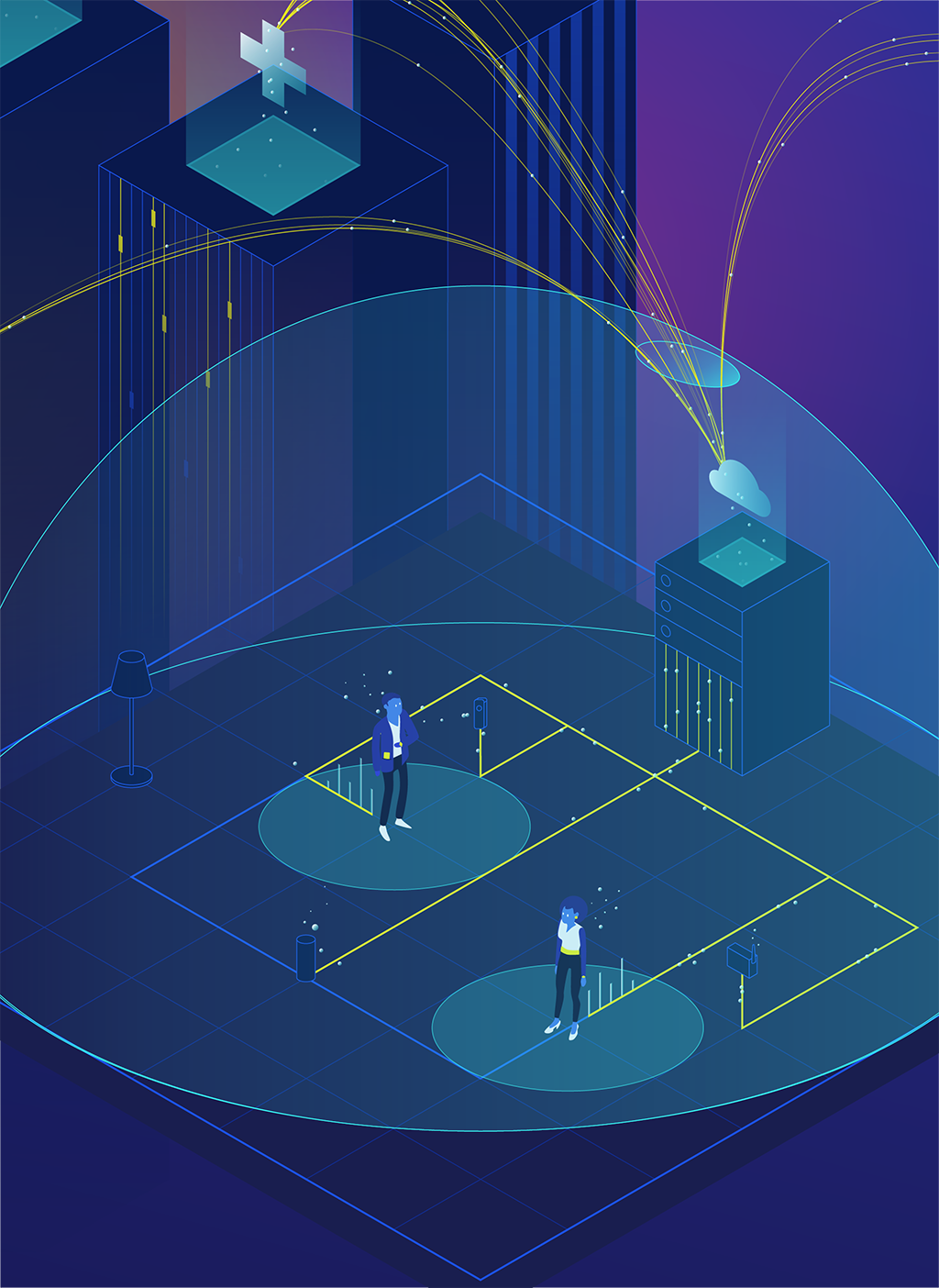
Scenario
What if more and more diseases could be detected at an early stage via self learning algorithms that find irregular patterns in our health data measured via wearables or sensors in our body? How do we as users want to interact with such a system? And what tools are needed to live a more self determined life instead of feeling monitored by a computer 24/7?
Health.ai
Health.ai gives small insights in a desirable future of our healthcare system. We focussed on the interaction between people and their health data by giving them tools which give them more responsibility and control over their health to live a more self-determined life.
1—System
Health.ai is a user owned health data ecosystem. The basis form network attached data storages, which are physically at the user's home. Together they are a decentralized system. Health data from wearables, apps and the digital patient file are stored homomorphic encrypted across the system.
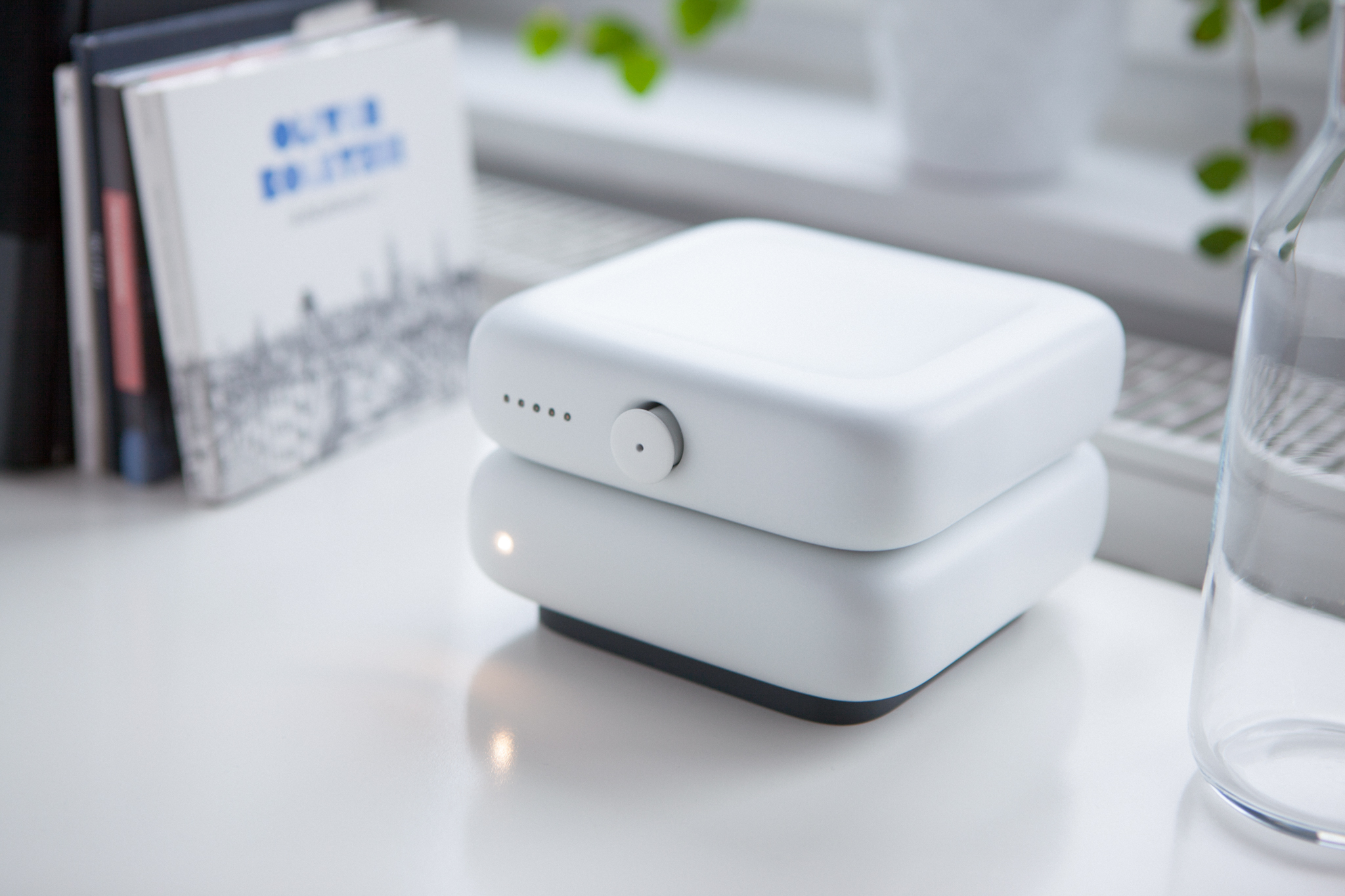
2—Profile
What if physicians can use body calues collected in everyday life so they can make more precise diagnoses? Or even work together with your personal digital health companion? With the health.ai profile the user is able to manage access to data and knowledge stored inside the system.
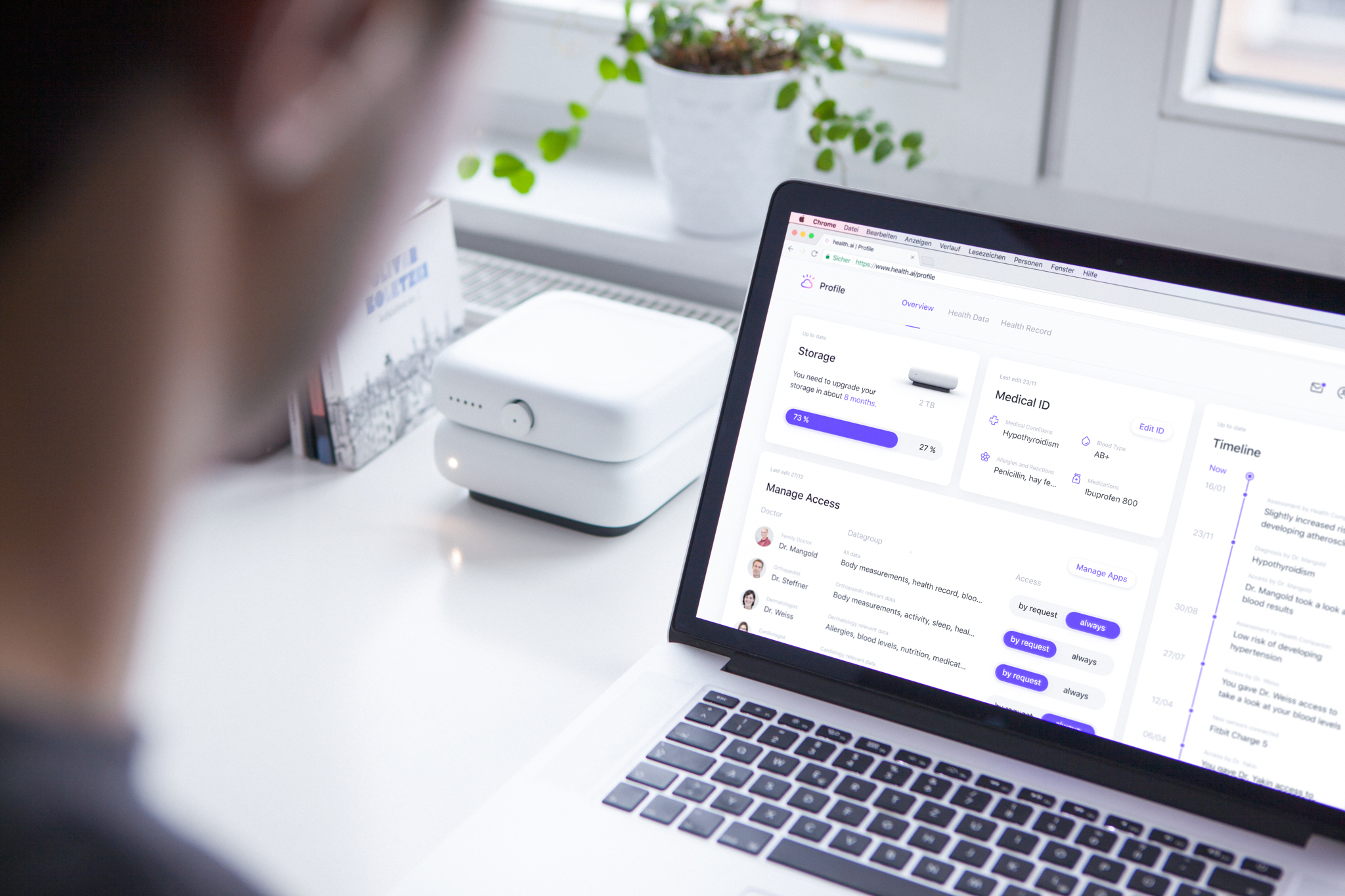
3—Companion
What if an AI could scan your health data, compare it to other users and finds out that you are at high risk of having atherosclerosis? At first this sounds intimidating, but we would still like to know about this information somehow. But how?
The health.ai Companion helps the user to intervene in long-term developments in diseases at an early stage. Therefore an artificial intelligence compares the user's health data with the data of other users in the system and asks him additional questions, comparable to a human doctor.
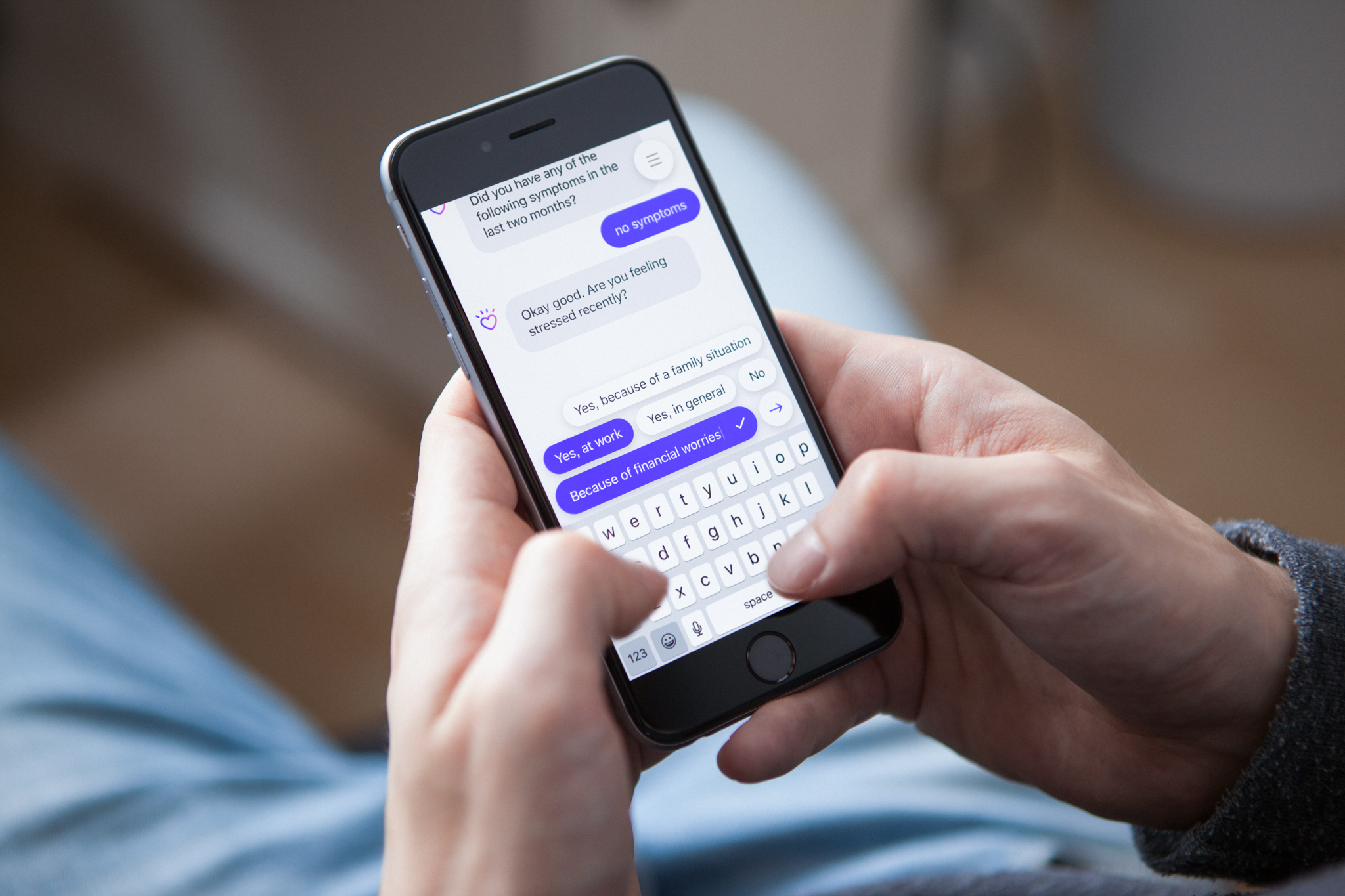
The findings of the companion are clearly visualized without using complex data graphs, to make it more personal. Risk factors are associated with various diseases.
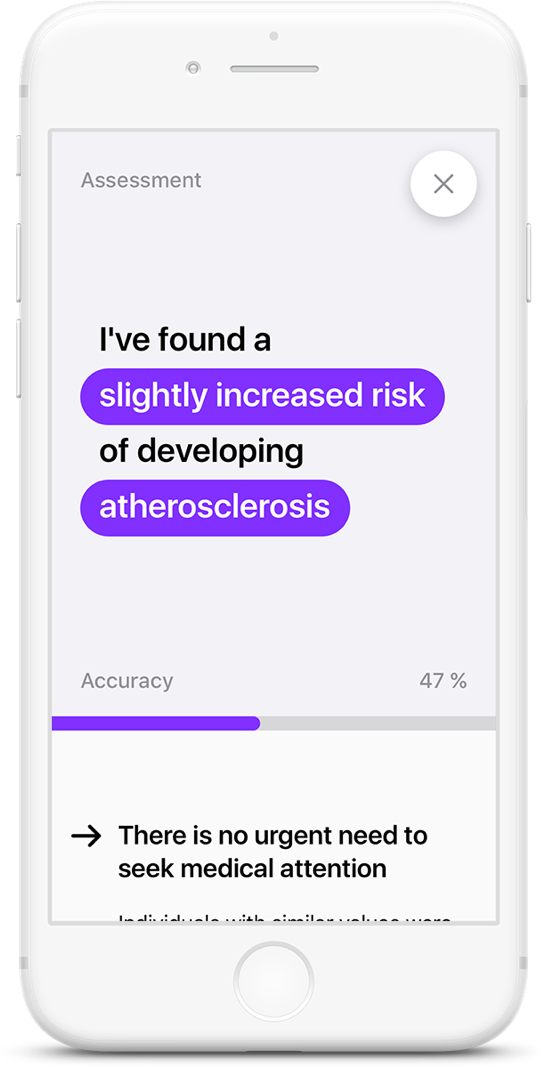
4—Home lab modules and sensor kits
A blood analysis attachment for the health data storage and a medically tested sensor kit from the pharmacy give an insight into how health data can be collected in the near future. These help the companion to make more precise diagnoses.
